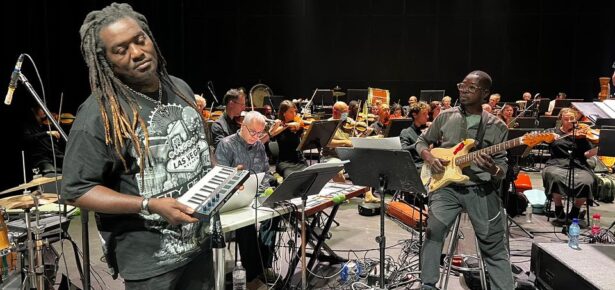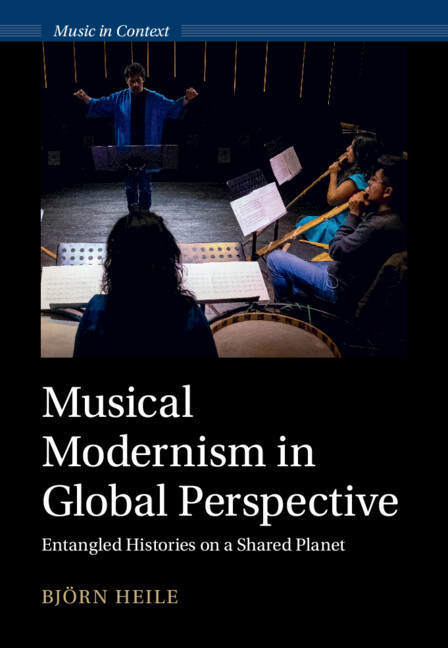
This year’s edition of the annual World New Music Days by the International Society for Contemporary Music (ISCM) took place on the Faroe Islands. Alongside the host nation, the opening concert featured works by composers from South Africa, Norway, Lithuania, the Czech Republic, Slovakia and China.[1] In the previous year, when the organisation celebrated its 100th anniversary, the event was held in South Africa, and it not only included plenty of music from across Africa but also collaborations with African traditional musicians, who typically don’t read Western staff notation, as a work category. Among the winning entries, this option was chosen by composers from Great Britain, Iceland and Japan.
On this evidence, contemporary or modernist music has come a long way. No longer is it the preserve of the rich and powerful nations of Western Europe and North America. One might suspect, however, that the outward diversity of participants is not matched inwardly by the actual music and that the latter is based on the standards and conventions established by Western composers – that, in other words, globalisation means westernisation and hence the global dominance of a universal musical idiom. After all, Western music owes its world-wide diffusion to colonialism and the continuing military, economic and military dominance of the Western powers. Indeed, the ISCM itself, founded as it was in Mozart’s birthplace, Salzburg, by representatives of primarily Western-European nations, bears testimony to that history. Over the years, however, new members from North and South America, Asia and Africa joined. As the inclusion of African traditional musicians demonstrates, they left their mark, and this is not an isolated, potentially tokenistic example.
To be fair, the ISCM is an international organisation modelled on the League of Nations, the predecessor of the UN, and, like its model, is governed by bureaucratic quotas and rules. Also like its model, it is often accused of irrelevance, so its World New Music Days hardly provide a faithful representation of the wider culture of contemporary music. Nevertheless, over the last century or so, modernist music has undoubtedly become more diverse and inclusive, both in terms of the people involved in it and of the music itself. While Western styles, traditions and concepts retain an often-normative function, influence no longer flows exclusively in one direction. Moreover, as I argue in my book, the notion of ‘Western’ modernist music is itself past its sell-by date: the music is the result of a long history of what I call ‘entanglements’ between the different world regions, and it has absorbed a variety of stylistic features and become hybridised in the process. This is not to say that modernist music is a utopia of equality and justice: on the contrary, it is subject to the same imbalances, tensions and power differentials operating in other areas of transnational encounter and exchange. But it is no longer adequate to focus exclusively on the global North or to view its interactions with the global South in terms of simplistic dichotomies between ‘Centre and Periphery’, ‘Self and Other’ or ‘East and West’.
What originally motivated me to write the book was the perception that, in critical and scholarly literature, modernist music written by composers from Latin America, Asia or Africa was often either ignored entirely, as is still common, or implicitly marginalised as an inevitably inferior imitation of European and North-American models. It seemed as if its Western identity was regarded as an unchanging essence of the music, so that, by that logic, any other contributions can only ever be marginal. By contrast, I believed that by adopting and adapting the music, these composers made it their own and used it for their purposes, and the results are often exciting, not least because they may challenge traditional paradigms. Over the last roughly one-hundred years, the music slowly changed its nature, no longer solely identifiable with its historical origin in Europe – where it had likewise always been subject to influences from elsewhere – but hybrid.
I further believed that doing justice to the contributions by non-Western musicians and composers and comprehending the global nature of modernist music required a novel conception of its history. Because it traditionally saw its remit as ‘Western’ music, musicology has been slower to respond to the challenges posed by globalisation, postcolonialism and decolonisation than neighbouring disciplines or its own sister (sub-)disciplines ethnomusicology and popular music studies. In contradistinction to the Eurocentric legacy of traditional musicology, then, the premise of my book is that modernist music, emerging as it did during a period of intensified global encounter from the height of imperialism in the early twentieth century, through decolonisation and accelerated globalisation in the late twentieth and early twenty-first centuries, bears the traces of these entanglements. As a consequence, I argue that musical modernism is constituted by a global diasporic network of composers, musicians and institutions. While modernist music is embedded in specific places, the nodal points of the network, it is the manifold entanglements between those points that make it what it is.
It follows that the book is not a traditional history of music as a succession of composers, works and styles, but instead focuses on the transnational entanglements between the West and other world regions. Key topics include migration, the transnational reception and transfer of musical works and ideas, institutions such as the aforementioned International Society for Contemporary Music) and composers who are rarely discussed in Western academia, such as the Nigerian-born Akin Euba and the Korean-German Younghi Pagh-Paan. What I aim to show, ultimately, is that musical modernism is no longer Western, at least exclusively so, but global.

Musical Modernism in Global
Perspective by Björn Heile
[1] A video of the event is available at https://vimeo.com/967589897.
Latest Comments
Have your say!